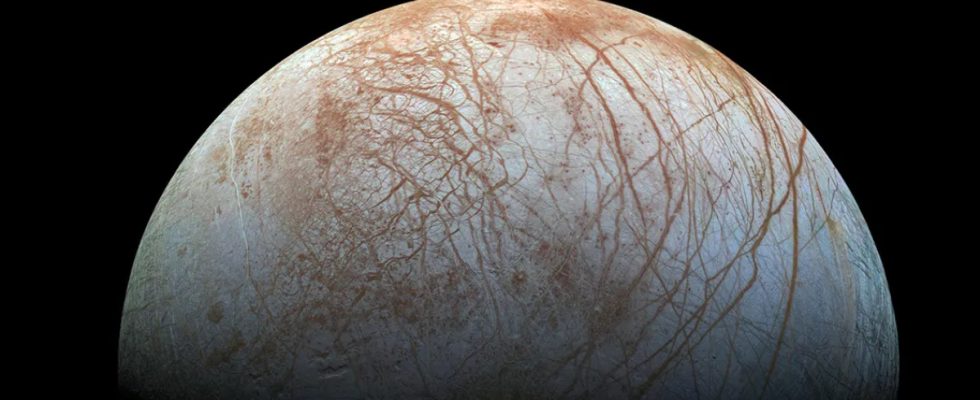On the icy surface of Jupiter’s moon Europa there is according to the results of a study by an American-European research group probably less oxygen than previously assumed. This, in turn, may have implications for the possibility of life in the liquid ocean beneath the moon’s kilometer-thick layer of ice or on the ice sheet.
Even if there is little or no oxygen, microbes could be floating around in the ocean. Theoretically, other living beings could emerge or already live down there. But without further investigations and space probes such as the Europa Clipper (planned to launch in autumn 2024) from the American space agency Nasa or the Juice space probe from the European space agency Esa, this is speculation for the time being.
It also remains to be confirmed whether the research group’s investigation is correct. Previous telescopic observations suggested condensed oxygen in the ice of Jupiter’s moon Europa. This in turn would indicate a higher oxygen concentration.
The result of the study
The new study is based on data from NASA’s Juno spacecraft, collected during a particularly close flyby of Jupiter’s moon Europa in 2022. The distance was about 350 kilometers.
The research group assumes that between six and 18 kilograms of oxygen are produced on Europa’s surface every second. Previous estimates were up to 1,100 kilograms of oxygen per second. This oxygen is formed along with hydrogen when Jupiter’s radiation hits Europa’s shell of frozen water.
It is unknown how much oxygen escapes into the moon’s atmosphere, how much remains in the ice, and how much could end up in the subsurface sea. A lower oxygen content would also affect the habitability of the moon for humans in the future.
To the study
The research was published on March 4, 2024 in the journal Nature Astronomy: Oxygen production from dissociation of Europa’s water-ice surface (Oxygen production through dissociation from Europa’s water ice surface).

